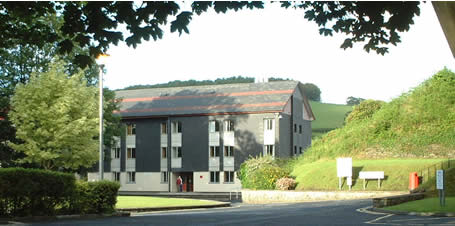We were practising questions and answers in class today. There are no exact equivalents of yes and no in Welsh. Instead when answering a question, you repeat the verb in the appropriate form, or in some cases you use other words. For example, responses to the question Wyt ti’n mywnhau’r cwrs ma? (Are you enjoying this course?), could be Ydw (I am) or Nag ydw (I’m not). It often takes me a few moments to work out the correct answer.
O’n ni’n ymarfer cwestiynau ac atebion yn y dosbarth heddiw, ac ddoe hefyd. Yn aml mae rhaid i mi feddwl am ychydig eiliadau i ddewis yr ateb cywir.
This morning we also attended a local cyd – an informal get together of local Welsh speakers and Welsh learners. It took place in the one of the pubs in town, and we heard and spoke quite a lot of Welsh, so it was very useful.
Y bore ma, aethon ni i’r tafarn yn y dre i gymryd rhan mewn cyd – cyfarfod anffurfiol bobl leol sy’n siarad neu sy’n dysgu Cymraeg. O’n ni’n siarad llawer o Gymraeg gyda nhw, felly oedd hi’n defnyddiol iawn.
It started absolutely tipping it down after dinner and I thought there might be floods like there were here last week. Fortunately the rain didn’t last more than about half an hour.
Ar ôl cinio, cychwnodd hi’n bwrw glaw trwm iawn. Ond oedd hi’n gorffen cyn hanner awr ac nag oedd llifogydd fel yr wythnos diwethaf.
I have some more homework to do for tomorrow, so I’d better go now.
Rhaid i mi mynd nawr, achos mae gen i mwy o waith cartref i wneud cyn yfory.


